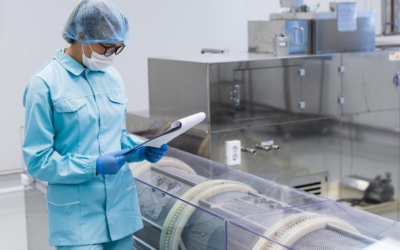Pre-K education plays a pivotal role in the early stages of a child’s growth. It provides a solid foundation for cognitive, emotional, and social development, setting the stage for lifelong learning. For babies, the initial years are crucial, as their brains are developing at an incredible rate. Baby development classes, specifically designed for children before they enter formal schooling, cater to these early needs and help foster a love of learning.
Cognitive Benefits of Pre-K for Young Minds
The brain’s plasticity in early childhood means it is especially receptive to learning. Pre-K education introduces children to concepts such as numbers, letters, shapes, and colors. These simple lessons lay the groundwork for more complex academic skills later on. Baby development classes often integrate sensory play and early problem-solving activities, helping to enhance cognitive abilities in fun and engaging ways.
Social Skills and Emotional Growth in Baby Development Classes
During pre-K years, children begin to navigate social interactions. Whether in baby development classes or pre-K programs, young children learn how to share, take turns, and communicate with their peers. Baby development classes are vital for developing emotional intelligence. As babies engage with others, they begin to understand emotions and develop empathy. These social skills become essential in later life for building relationships and functioning well in diverse environments.
Pre-K Education Builds Independence and Confidence
In baby development classes, toddlers start to learn the basics of independence. The structured environment of pre-k helps them build confidence by providing opportunities to complete simple tasks on their own. Whether it’s putting away toys, drawing pictures, or participating in group activities, these small successes are crucial. As a result, children feel more capable and ready to face challenges, boosting their self-esteem.
Language Development in Pre-K Settings
One of the most significant benefits of early education is the development of language skills. Pre-K education encourages children to expand their vocabulary and learn to express themselves clearly. Baby development classes also introduce babies to new words, songs, and stories, which help stimulate their language development. The interaction with teachers and peers provides the verbal stimulation babies need to develop strong language skills, which are key to later academic success.
Creating a Strong Foundation for Future Learning
Pre-K education is more than just preparation for kindergarten; it lays the groundwork for all future learning. By enrolling babies in baby development classes, parents ensure that their child is equipped with the skills needed to thrive academically and socially. Early exposure to structured learning environments helps children understand the importance of routines and discipline, creating a sense of order that carries through to later school years.
Long-Term Benefits of Early Learning
The advantages of pre-K education extend well beyond the preschool years. Research consistently shows that children who attend pre-K programs are more likely to perform well academically in primary school and beyond. These children often exhibit stronger critical thinking skills and better emotional regulation. By investing in baby development classes and pre-K education early on, parents are giving their children a head start that can impact their educational journey for years to come.
Conclusion
Pre-K education and baby development classes are essential for fostering a well-rounded, intelligent, and emotionally balanced child. These early experiences are not just about learning the alphabet or counting; they are about building the necessary skills for lifelong success. By providing a nurturing environment that promotes cognitive, social, and emotional growth, pre-K education sets babies up for a bright future.








